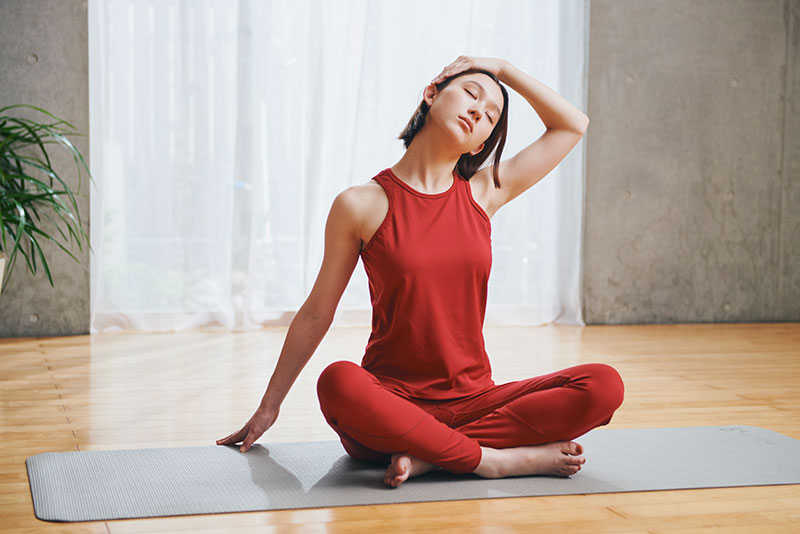Common symptoms include sadness, fatigue, problems with concentration, and lack of sleep. Fortunately, with a few lifestyle changes, you can boost your mood and energy during the cold-weather months. Take advantage of these tips.
Improve Your Diet
Research shows a connection between diet and depression, so fighting the winter blues might be as simple as changing what you eat. Try a mood-boosting Mediterranean diet that contains foods like fish, whole grains, and fresh fruits and veggies. Or, add some foods high in vitamin D to your shopping cart. People with depression often have low levels of vitamin D, but foods fortified with this vitamin might help. Examples include breakfast cereal, milk, yogurt, and orange juice.

Get Regular Exercise
Physical activity has been linked to reduced depression, lower stress levels, and better mood. During the winter, you don't have to stop exercising. You can join a gym, take a yoga class, or stream a workout video on your living room TV. Don't let winter weather stop you from getting outdoor exercise too. Ways you can be active outdoors in cold climates include:
- Alpine or nordic skiing
- Ice skating
- Sledding
- Snowboarding
- Snowshoeing
Bask in More Light
If there's one thing we don't get enough of in the winter, it's light. Research shows that sunlight helps maintain levels of serotonin, a neurotransmitter in the brain that helps regulate mood. More benefits of sunlight include:
- Higher levels of melatonin, a hormone that promotes sleep
- Better balance of circadian rhythms
- Increase in the amount of vitamin D produced by the body
All of these benefits can improve your emotional state, so it's important to get as much sunlight as possible during the colder months.
If bad weather prevents you from going outdoors, you can try out a lightbox, a gadget designed to produce soft, steady light. For light therapy to be safe and successful, your lightbox should emit 10,000 lux (a measurement for light intensity) and contain no UV rays. If you have any preexisting conditions, you should consult with your doctor before trying light therapy.

Practice Relaxation
Scheduling relaxation time can be spirit-lifting any time of the year. Relaxation techniques encourage the release of endorphins, chemicals produced by the pituitary gland that can lighten mood and relieve pain. Good relaxation techniques to try include:
- Aromatherapy
- Listening to soft music
- Mindful breathing
- Meditation
- Tai chi
- Yoga
Indulge in Self-Pampering
When you're feeling anxious or sad, it may be time for a little self-pampering. Following these tips might elevate your mood, especially when it's too cold or stormy to go outdoors:
- Take warm bubble baths.
- Top your morning coffee with real whipped cream.
- Light candles scented with jasmine, vanilla, sandalwood, bergamot, or white musk.
- Treat yourself to luxurious lotion or face cream.
- Read good novels.
- Watch funny movies.
- Put together a colorful jigsaw puzzle.
Create a Consistent Sleep Routine
Lack of sleep can play havoc with your circadian rhythms. This can affect your mood, motor skills, focus, and memory. Fortunately, you can improve your sleep with a few helpful tips:
- Limit caffeine consumption to the morning or early afternoon.
- Don't eat late in the evening.
- Keep your sleep time and wake-up time consistent.
- Follow a before-bed routine like turning off the TV, having a cup of herbal tea, taking a bath, and lowering the lights.
- Turn down the thermostat a few degrees for sleeping.
- Consider dietary supplements for sleep like valerian root, melatonin, or lavender.

Maintain Social Contact
If a worldwide pandemic taught us anything, it's the relationship of social contact to our mental health. If you can't muster up the energy to have coffee with a friend or go for a walk with a relative, try a phone call or virtual chat. The benefits of socializing extend beyond improving your mood. Regular social contact also:
- Reduces your risks for dementia
- Encourages a sense of security and belonging
- Releases oxytocin, a hormone that can reduce stress levels
- Improves overall satisfaction with life

When to Seek Help
For some people, the winter blues can lead to a more serious form of depression known as SAD (seasonal affective disorder). Signs of SAD can include:
- Persistent sadness
- Loss of interest in activities
- Low energy
- Frequent sleeping
- Not sleeping enough
- Lack of focus
- Feelings of hopelessness
- Suicidal thoughts
It's normal to be blue sometimes, but if you're experiencing the symptoms above, it may be time to consult with a medical or mental health professional. There are various forms of treatment a professional can recommend to help ease your symptoms.
Please note: This information does not contain or constitute medical advice or a medical opinion, and it is provided for informational purposes only. You should always consult a qualified and licensed medical professional prior to beginning or modifying any diet or exercise program.
